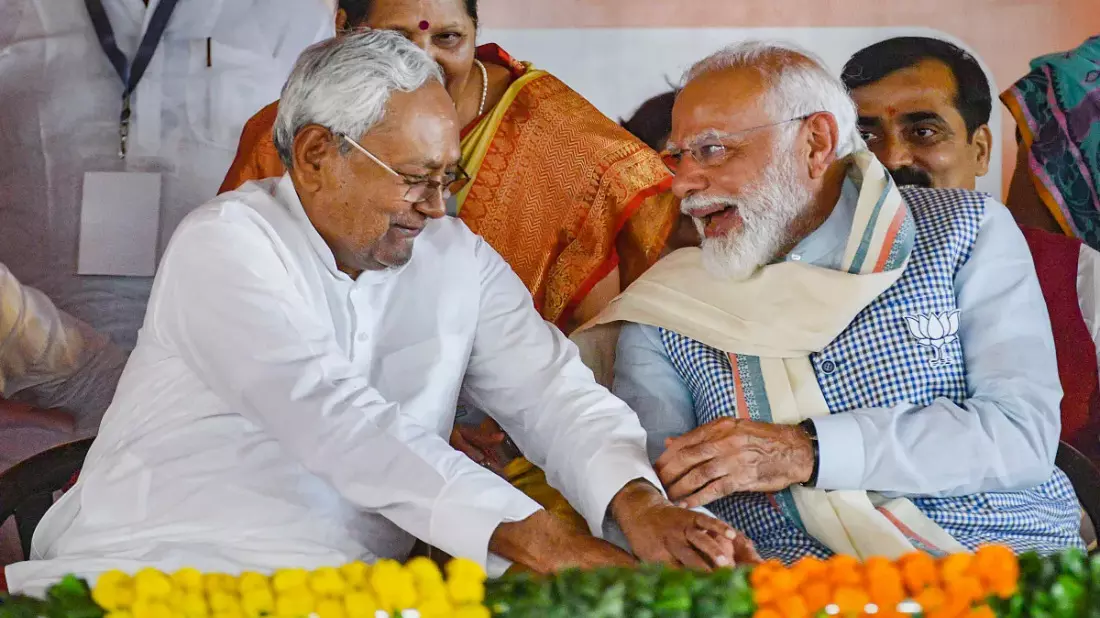NDA seat sharing in Bihar: JD(U), BJP to contest 101 constituencies each, Chirag’s party gets 29

Patna: The ruling NDA in Bihar on Sunday finalised its seat-sharing arrangement for the upcoming polls to the 243-member assembly, in which Chief Minister Nitish Kumar's JD(U) and the BJP will contest 101 constituencies each, leaving the rest for smaller allies.
The announcement to the effect came on X handles of JD(U) working president Sanjay Kumar Jha, Deputy Chief Minister and BJP leader Samrat Choudhary and Union minister Chirag Paswan whose Lok Janshakti Party (Ram Vilas) has settled with a deal of 29 seats.
The Hindustani Awam Morcha of Jitan Ram Manjhi, who had been insisting on “at least 15 seats”, has been given only six constituencies, while the remaining six assembly segments went to Rajya Sabha MP Upendra Kushwaha's Rashtriya Lok Morcha.
Jha, Choudhary and Paswan, all of whom have been camping in the national capital for the past few days, were unanimous in the averment that the deal was clinched in an “amicable atmosphere”.
Manjhi, who is rumoured to be unhappy with the formula, wrote on his X handle that he was returning to Patna, but asserted, "I will stay with Prime Minister Narendra Modi till my last breath".
Barring Kushwaha’s party, which came into being only a couple of years ago, all other constituents of the NDA have agreed to contest fewer seats than the number of constituencies they fought respectively in the 2020 polls.
In the last elections, the JD(U) had the lion’s share of 115 seats, followed by the BJP at 110 and Manjhi’s HAM at seven.
Paswan, who was then heading the Lok Janshakti Party, had fought separately and fielded candidates in 135 seats.
Another NDA partner of 2020, Vikasshheel Insaan Party of former state minister Mukesh Sahani, which is now with the INDIA bloc, had contested four seats.
The JD(U) is understood to have not insisted on a lion’s share this time in view of the party’s poor performance in 2020, when it won only 43 seats, far less than the BJP’s 74, though the debacle was blamed, primarily, on Paswan’s revolt.
Paswan’s revolt was then suspected to have been at the behest of the BJP and had also resulted in JD(U) supremo Nitish Kumar’s exit from NDA, albeit for a brief period of 17 months.



